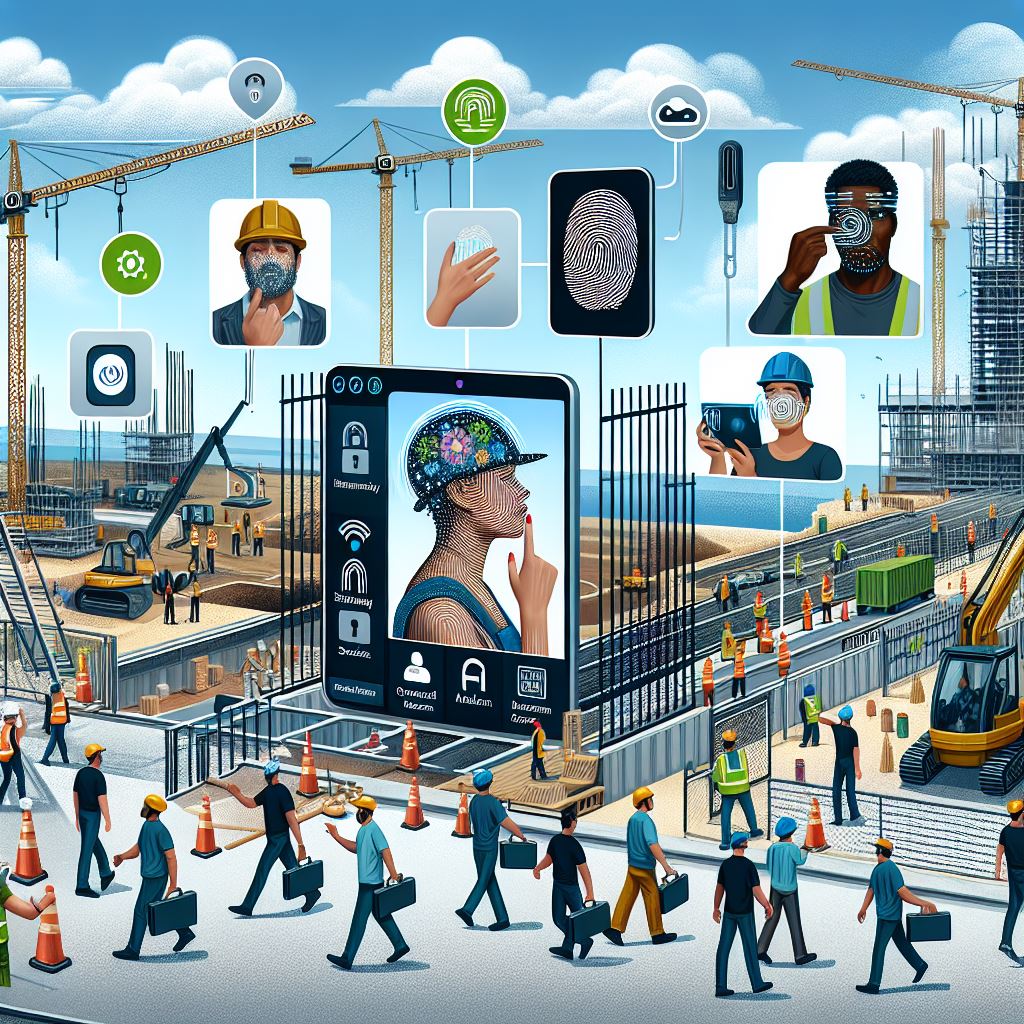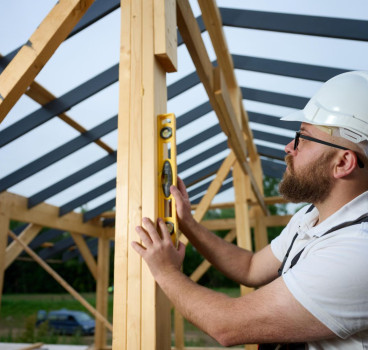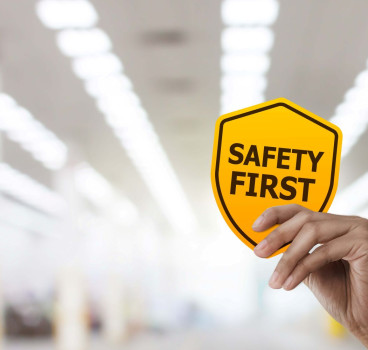Access control and how it is changing construction
Biometric authentication, AI integration, cloud-based access systems and automation are shaping the construction industry by improving safety, streamlining processes and aligning with the increasing push for sustainability. These systems, which include fingerprint scanners, facial recognition and retina scans, are particularly transforming access control on construction sites, but unlike traditional keys or swipe cards that can be misplaced or duplicated, they provide instead a personalised and foolproof method of identifying individuals – and it is changing the face of construction - writes John Ridgeway.
They are bringing enhanced security, ensuring that only authorised personnel can access restricted areas and are helping to reduce theft and trespass incidents. Biometric systems that can log workers' entry and exit times, are providing accurate records for payroll and compliance and because they ensure workers can only be granted access to specific areas based on their role, they are also delivering better safety protocols.
Artificial intelligence (AI) and machine learning in particular have become powerful tools in access control. These technologies provide real-time data analysis, helping construction sites identify potential threats and inefficiencies. Machine learning algorithms monitor entry patterns to flag suspicious activity and AI-powered cameras detect unauthorised personnel or unusual movements, alerting security teams instantly. These systems can also predict when equipment, such as gates or locks, might fail, preventing costly delays.
Cloud-based access control
Cloud technology has further revolutionised access control by enabling remote management and real-time monitoring. Construction firms can now centralise security across multiple sites, ensuring seamless operations regardless of location and this has brough multiple benefits to the industry.
Managers can now update access permissions remotely, ideal for sites with fluctuating worker numbers. Cloud systems also reduce the need for on-site IT infrastructure and can also simplify maintenance. Furthermore, activity logs and reports can be generated instantly, assisting with compliance and audits. This flexibility is particularly valuable for large-scale construction companies managing numerous projects simultaneously.
All this mean that automation has become a cornerstone of modern construction sites, enhancing both security and efficiency. Automated gates, turnstiles and sensors are replacing manual systems, reducing human error and improving workflow.
Workers can now gain entry without physical interaction, minimising delays. Automated barriers are helping to streamline the movement of vehicles and equipment while maintaining safety. Automated systems equipped with AI can also identify authorised personnel and vehicles, further speeding up operations.
With the construction industry under pressure to reduce its environmental footprint, access control systems are also becoming greener. Innovations like solar-powered gates and energy-efficient RFID systems are leading the way.
While security is paramount, modern access control systems are also designed with usability in mind. Features like mobile-enabled access and intuitive interfaces improve the daily experience for workers and managers alike.
Smartphones are replacing traditional credentials, making access faster and more convenient. Administrators are able to customise access based on roles, projects, or schedules, made even easier because these systems work alongside existing construction management software for streamlined operations.
Why this evolution matters
As we have seen, the integration of advanced access control systems in the construction industry is not just a technological upgrade - it’s a necessity and here’s why. With the high value of materials and equipment on construction sites, advanced access systems reduce risks significantly. Automation and AI-driven insights streamline workflows and cut costs and as safety and sustainability standards rise, these technologies help companies stay compliant. Cloud-based solutions are also ideal for growing businesses that manage multiple projects.
The future of access control promises even greater advancements. Innovations like blockchain-based security, drone monitoring and quantum encryption are on the horizon. As these technologies mature, they will bring unprecedented security and efficiency to the construction industry.
By embracing these trends, construction firms can not only protect their assets but also position themselves as leaders in innovation and sustainability. Whether it’s biometrics, AI, or cloud-based systems, the evolution of access control is reshaping the industry for the better.

Additional Blogs

Construction site safety - is zero tolerance realistic?
Walk onto almost any construction site in the country and you will see it printed in bold letters across hoardings and induction slides: ZERO TOLERANCE. It sounds decisive, reassuring and strong. The...
Read moreIs timber construction really greener - or just trendy?
Over the past decade, timber has enjoyed something close to a renaissance. Architects talk about warmth and biophilic design. Developers highlight carbon storage. Contractors discuss speed of...
Read more

4 Must-Follow Health and Safety Habits for the Modern Jobsite
The risks in modern jobsites are constant. Falls, chemical exposure and heat illnesses continue to injure workers across construction and related industries each year. The best way to reduce those...
Read more